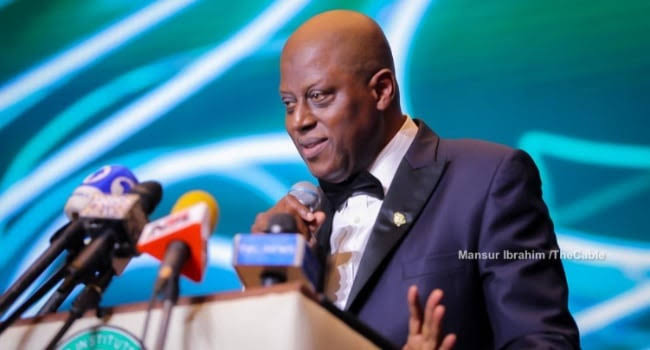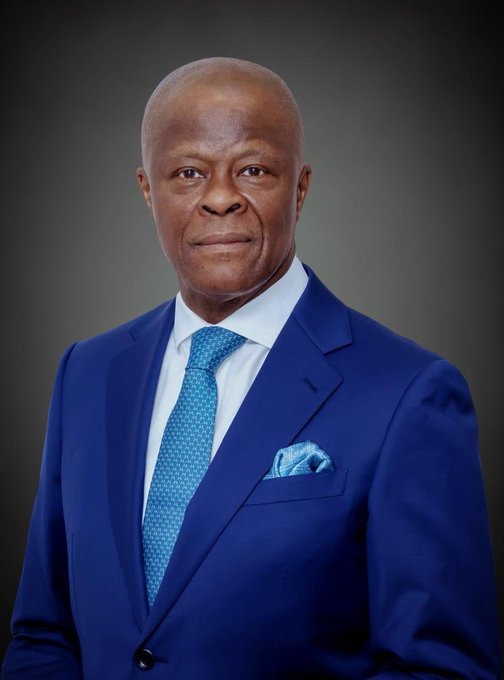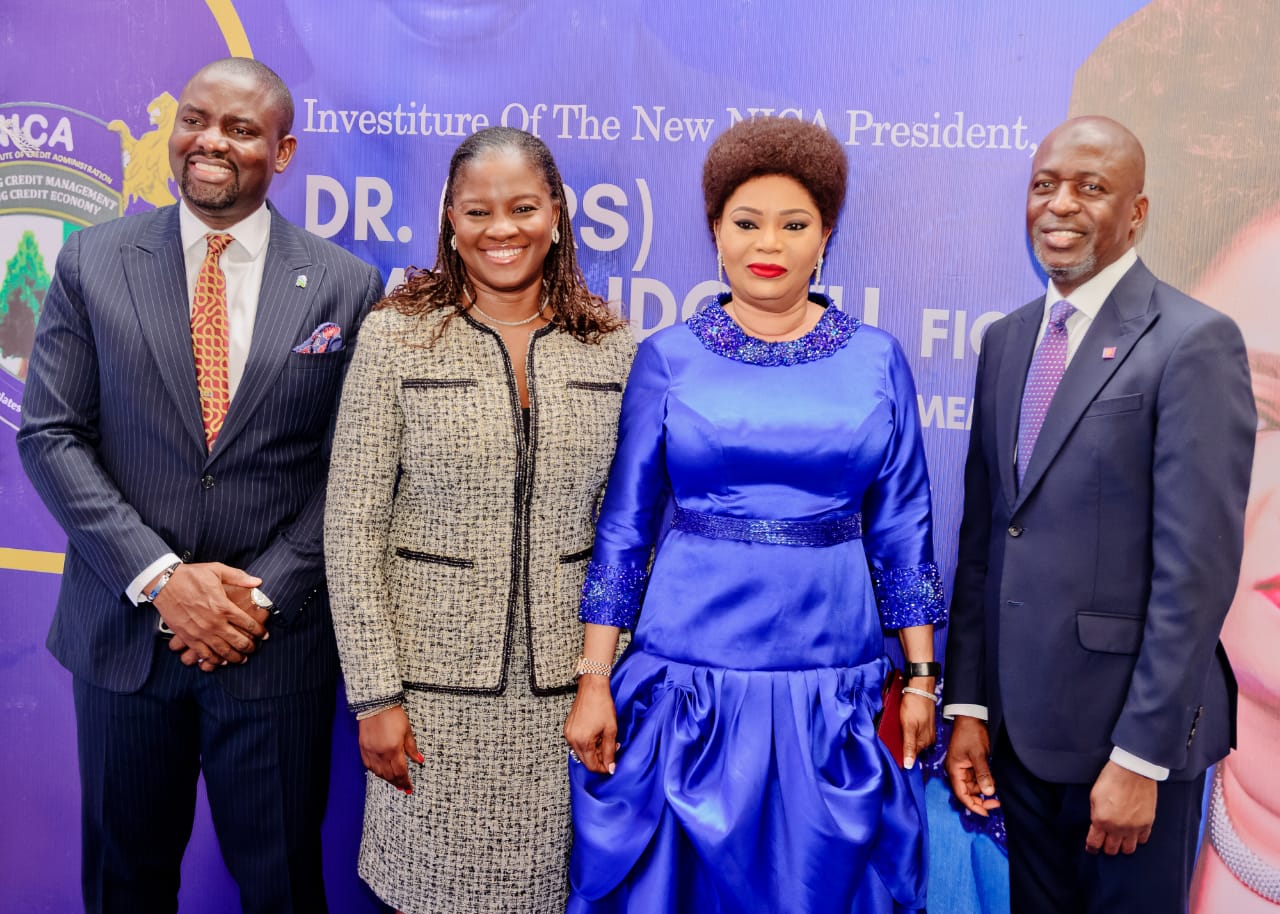Cardoso: Moving The CBN In The Right Direction
BY BASHIR JALAL

In the peculiar context of Nigerian public space, there are three categories of critics. The first is that of people who offer constructive engagements and are not bogged by pecuniary, regional, or primordial consideration. They offer alternative opinions they believe are best for all and for the love of the country. They also give commendations when convinced that public officials have done well, regardless of political affiliation or ethnicity.
The second category is composed of people who have outsourced the responsibility of their personal choices and believe all their problems should be solved by the government. Persons who believe big and small challenges are caused by their “enemies” or particular faces they see on TV. This category seems to slam office holders, especially the ones marked for aspersion for doing the right thing.
The third category comprises individuals still hurting from the outcome of the general elections and are up in arms ahead of the next round of polls. They are the sectional champions and jingoists who believe those from other parts of the country are not fit for the position they occupy. They never see anything good in the leaders in power and like to undo the system with mischievous and inciting rhetoric.
The Central Bank of Nigeria (CBN) Governor, Yemi Cardoso, had his share of slander. Recently, desperate folks went to town to claim that President Bola Ahmed Tinubu asked him to quit over alleged failure to stop the fall of the naira. These armchair critics resorted to sponsoring publications after months of vitriol against the appointee in an attempt to distract him from the huge task.
Presidential spokesman Bayo Onanuga already clarified that the President has no intention to sack Cardoso. It was not the first time the presidency rose in his defense.
Earlier, President Tinubu himself gave a vote of confidence. “The cacophony of postulations on the fluctuation of foreign exchange rates is unduly affecting the market negatively. Every one of us can not be an expert. If we have given someone an assignment, let us allow them to do it,” he said.
Nigerians deserve to know the actual state of things and need to collectively face reality in order to get out of the quagmire that was inherited. On the 29th of May, 2023, the President inherited an economy in which nearly 100 per cent of revenue was used to service debt, on the same loans that were used to pay an average of N6 trillion annually for a fraudulent fuel subsidy regime.
Also, there was the $1.5 billion to defend the naira on a monthly basis in an economy that produces nothing and consumes many things from abroad. Consequently, the President had to yank off the scam called subsidy (based on a dubious 70 million litres consumption of PMS per day) and float the naira, allowing the value of the currency to be dictated by the forces of demand and supply, as it should be.
Cardoso, who assumed office in September 2023, therefore put together policies to complement the President’s decision, moving to rein in the rising foreign exchange rates and achieve an appropriate value for the naira.
With the support of relevant agencies, the CBN has been tackling underhand dealings like round-tripping that adversely affect the currency. To regulate the activities of the International Money Transfer Operators (IMTOs), the CBN issued a circular directing that all diaspora remittances to Nigeria are received in naira.
In the wake of the floating of the naira and return of market forces, some of the variables shaping the value of the currency are obviously beyond Cardoso’s control. These factors include limited local production caused by insecurity; high taste of Nigerians for imported products and disdain for local goods and services; dwindling exports; poor dollar remittances; humongous school fees of Nigerian students abroad and medical tourism.
The irony is that the same members of the elite calling for Cardoso’s head are, in fact, contributing to naira’s frailty. They patronise foreign goods and services, although readily available here. They insist on going to Saudi Arabia and Israel annually to pilgrimage even after multiple previous attendance. They can afford luxuries because they have deep pockets, sometimes through ill-gotten wealth.
In the last decade, according to Cardoso, the foreign exchange demand for education and healthcare was nearly $40 billion, surpassing the current foreign exchange reserves of the CBN. Personal travel allowances accounted for $58.7 billion during the same period. Nigerians who spend an annual average of $200 million on imported hair, £25 million on Whiskey, $75 million on Champagne, etc., somehow think Cardoso’s is the problem. But can naira remain strong amid capital flight of millions of dollars and pounds?
Taking a closer look at the CBN, a lot has actually changed for the better in the last one year. The apex bank has introduced a couple of robust reforms targeted at achieving market transparency, improving financial stability, fostering a more secure investment environment, and shifting towards a market-driven exchange rate regime to restore confidence and stabilise the economy.
The introduction of new guidelines for dormant accounts, the suspension of processing fees to encourage cash deposits, and the advanced use of Early Warning Systems further have caused stability and promoted trust within the financial sector. Part of the gains of the reforms is the increase in remittance inflows, which peaked at $553 million in July 2024. The all-time high performance represented 130 percent increase from the corresponding period in 2023.
The inflation rate is dropping gradually. The Consumer Price Index (CPI), which calculates the rate of change in prices of goods and commodities, eased to 32.15 percent in August 2024, compared to 33.40 percent in July 2024. This improvement was because the CBN adopted an aggressive monetary policy stance that involved increasing interest rates. This, in theory, reduced spending and investment, thereby cooling down demand in the economy.
The CBN has been enforcing measures to mop up excess liquidity from the system, further tightening financial conditions. Additionally, the regulator has streamlined the forex market into a single framework, enhancing liquidity and reducing market distortions, cleared a $7 billion backlog of valid forex, reduced forex volatility, and increased external reserves to $37.9 billion as of July 2024, up from $33.6 billion in October 2023.
In addition to increased focus on consumer protection through enhanced regulations, the CBN has adopted ISO 27001 standards and introduced a risk-based cybersecurity framework. It conducted a Cyber and Technology Assessment to improve resilience and operational efficiency, revised the guidelines to include Virtual Assets Service Providers (VASPs), and updated anti-money laundering measures to adapt to evolving digital asset trends.
The CBN has also implemented stricter KYC and AML requirements, including linking Tier 1 and wallet accounts to BVNs or NINs, as well as temporary restrictions on suspicious accounts to prevent fraud. There are also new licensing requirements, capital standards, and a franchise model to boost forex distribution and monitoring of BDCs. The guidelines, issued in line with section 56 of the Banks and Other Financial Institutions Act (BOFIA) 2020, supersedes the 2015 Revised Operational Guidelines for Bureau De Change.
The guidelines introduced two categories of licences – Tier 1 and Tier 2. Henceforth, BDCs must re-apply for a new licence based on the preferred category and meet the minimum capital requirement for the category applied within 6 months (from June 2024). Tier 1 BDCs must have a minimum capital of N2 billion lodged with the CBN and pay N1 million application fee; N5 million as license fee. Tier 2 BDCs are required to have a minimum capital requirement of N500 million; the application fee is N250,000, while the licence fee is N2 million.
Furthermore, as the current administration seeks to achieve a $1 trillion economy by 2030, the CBN has declared the need for stronger banks which are better equipped to service the needs of a fast-growing economy, thus necessitating recapitalisation.
In March 2024, the CBN announced an increase in the capital requirements for banks across the different licence categories. The ultimatum is March 31, 2026.
Options include equity issuance, mergers, or license adjustments. The new minimum capital base for commercial banks with an international licence is N500 billion, and N200 billion for commercial banks with a national licence. A N50 billion minimum is required for commercial banks with a regional licence; N50 billion for merchant banks with a national licence. For national and regional non-interest banks, the base is N20 billion and N10 billion, respectively.
In conclusion, resorting to mudslinging and propaganda will not make the President undo the progress made so far by removing the apex bank governor. The Central Bank of Nigeria, under Cardoso, is moving in the right direction and requires the support of all and sundry. Let us take into consideration that certain processes and policies take time to produce the desired results.
Bashir Jalal writes from Tarauni, Kano














